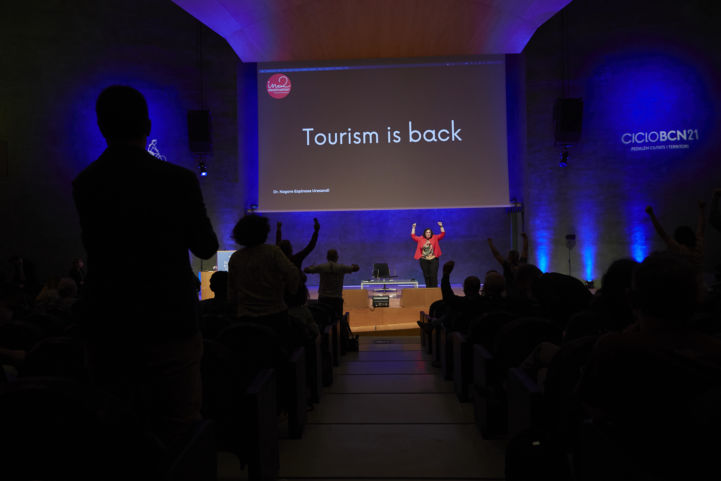Leading the way: key role for cycling in the future of tourism
Even when bidding to host the EuroVelo & Cycling Tourism Conference back in 2019, Barcelona made it clear that they wanted to focus on how cycling tourism can help to address the Sustainable Development Goals (SDGs). If anything the necessity of reaching these goals has become even more apparent since then, with weekly reminders appearing in news reports of the impact of climate change across the planet.
The past two years have also emphasised that cycling tourism can indeed play an important role in responding to the challenges that we are facing as a society. Our daily lives have been thrown upside down by the impact of the COVID-19 pandemic and many industries have been negatively effected, perhaps most notably the tourism sector. However, during this period the numbers of people taking up cycling for tourism or leisure has actually been increasing as people discover its many benefits.
As identified through our collaboration with Eco Counter, over the past two years there has been a general growth of 2% on the EuroVelo Network, including a 12% increase at weekends suggesting that much of this growth can be connected to tourism and leisure use.

In the opening plenary of the EuroVelo & Cycling Tourism Conference, Dr Fiona Bull, Head of the Physical Activity Unit at WHO, recognised the important contribution that cycling can make and spoke of how decision makers should therefore make walking and cycling a cross-governmental policy priority. It is not only a transport policy - it is also a health, environment, social and economic policy.
During the same session, Dirk Glaesser, Director of Sustainable Development at UNWTO, acknowledged that the tourism sector has to play its part to address society's challenges and agreed that cycling tourism is increasingly part of the solution. However, he stressed that it is important to be able to measure the positive impact cycling has on global activities. The UNWO will be launching the Glasgow Declaration on Tourism and Climate Change to coincide with the UN Climate Change Conference COP26 in Glasgow to accelerate climate action in tourism.
During the conference's second plenary, three diverse destinations from across Europe explained how cycling tourism has helped them become more resilient to the challenges - both local and global - that they are facing. In Limburg, cycling tourism has been embraced as a solution to the economic restructuring that the region had to undergo follow the closure of its mines. A thousand kilometres to the south, the Italian city of Bologna has also decided that cycling tourism can help too by encouraging more sustainable travel patterns that bring tourists to new areas.
There was also the example of La Molina ski resort, which sees cycling tourism as a solution to shorter winter seasons with the impact on their sensitive environments reduced by encouraging visitors to bring their own bikes with them on the train.

In the final session of the conference, tourism expert Nagore Espinosa tied these threads together in a lively presentation that called for a change in the way we approach tourism in the future. More focus should be given to ensuring that the sector works for the communities in the destinations, as well as the visitors. And not for the first time that day, cycling tourism was identified as being well placed to do just that!ciclobcn21.cat/en/